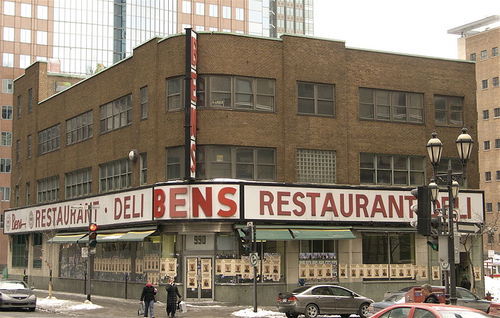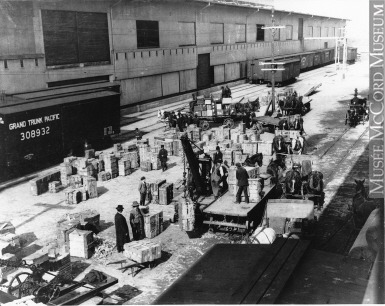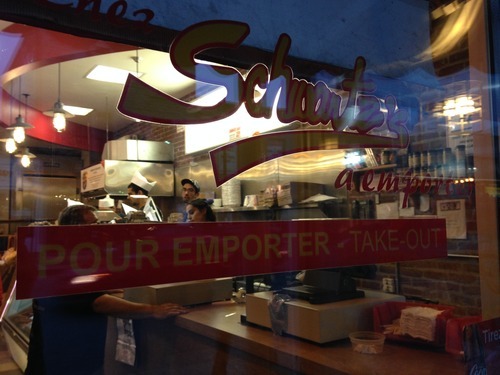FreshMint Blog — A (very) brief history of Montreal smoked meat
Whether it be Schwartz’s or Pete’s, smoked meat has a special place in the hearts of Montrealers. Smoked meat is traditionally beef brisket, somewhat similar to pastrami, except in pastrami you can’t be so sure of exactly what meats are going into it. Smoked meat also marinates for twice as long, meaning stronger flavours without needing extra meat.
Believe it or not but smoked meat comes out as pastrami’s healthier cousin: less sugar, and less fat. As far as ordering your smoked meat goes, fattier equals tastier — but keep in mind that about a third of the fat in smoked meat is saturated.
Making it at home takes days of brining, hours of smoking, and baking. In restaurants, this is done in bulk and the meat is kept nice and hot so it can be hand-sliced on demand.
Despite its deli decorum, done properly, the food is veritable artisan work.
But who created the original?
Schwartz’s, which has used the same recipe since 1928, might seem like the obvious place to start. But even though they’re the best known of the delis, with their down-the block line-ups, they weren’t smoked meat’s progenitors.

Another historic institution, Ben’s De Luxe Delicatessen, is often invoked as the first maker. His recipe was apparently adapted from old Lithuanian traditions (the family came from Lithuania in 1908, and opened the deli in 1910. Its historic run lasted until 2006). It’s a good family story — he sold the meat from his wife’s store before opening the deli.
But it also could have been a New Yorker by the name of Eiran Harris, or a salami maker by the name of Itzak Rudman.
But a Eiran Harris, Archivist Emeritus of the Jewish Public Library in Montreal, says that the story is even more complicated. He pins the invention on Romanian immigrant Aaron Sanft — in 1884, a good 26 years before Ben’s hit the scene.
This version of the history makes a lot of sense. Sanft was perhaps Montreal’s first Kosher butcher, and in his native Romania butchers had already developed a deliciously tender smoked meat, thanks to the influence of invading Turks.
It’s an immigration innovation, as so many great Canadian ideas are, and Sanft capitalized on the market pretty quickly. He tuck out a full-page ad in 1894 proclaiming the arrival of a kosher meat that wouldn’t spoil.

The whole market of smoked meat in Montreal still faced stiff competition from New York, where Jewish markets were already established. But Montreal smoked meat took hold: here was real food, served up on good bread, cheap enough and unlikely to spoil. For a city full of working-class immigrants, smoked meat sandwiches were a godsend.
The rest is history, more or less. Where’s your favourite Montreal spot?







